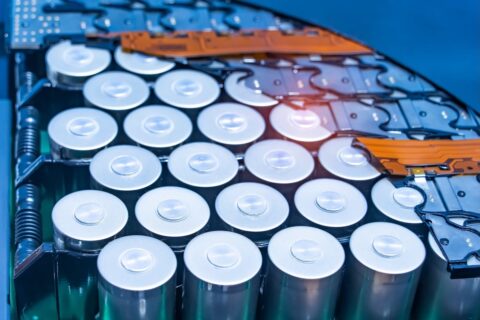
Helping markets account for embodied carbon in clean tech, a leading ecolabel for electronics has for the first time included solar PV modules on its list of industry products from recognised climate champions.
First Solar has announced that its Series 6 Plus and Series 7 TR1 products have officially made the list of nearly 1,500 products from leading electronics brands known as EPEAT Climate+ Champions.
EPEAT is a globally recognised ecolabel that includes independent validation and allows for the easy identification of environmentally preferable products from socially responsible companies.
The ecolabel addresses the whole product lifecycle, right from materials extraction, through energy and water use in manufacturing, to packaging and, ultimately, reuse, recycling and recovery in disposal.
EPEAT is owned and operated by the Global Electronics Council (GEC), a mission-driven non-profit that seeks to create a world with only sustainable electronics.
Effective 4 June 2024, GEC has now officially activated its Ultra-Low Carbon Solar (ULCS) Criteria for the Solar category of the EPEAT electronics ecolabel.
Ultra-low GHG threshold for production
Raising the bar for solar modules, EPEAT Climate+ is billed as the only global ecolabel to address greenhouse gas (GHG) emissions during the different stages of production.
Products receiving the designation must meet the ultra-low carbon threshold of ≤400 kg CO2e/kWp.
EPEAT Climate+ therefore helps purchasers identify technology products designed and manufactured with climate change mitigation in mind, enabling better management of scope 3 emissions.
In this way, the ecolabel can be a market driver, says Bob Mitchell, Chief Executive Officer, GEC:
“EPEAT Climate+ helps ensure that purchasers and investors are able to prioritise ultra-low carbon solar technologies that meaningfully support decarbonisation efforts.
“This is a simple, yet effective tool to mitigate lifecycle carbon impacts of solar modules, while enabling a market for responsibly manufactured technologies that embody sustainability.”
Market differentiator for embodied carbon
First Solar’s responsibly produced, advanced thin-film PV modules already set industry benchmarks. Its Series 7 modules have the lowest carbon and water footprint of any commercially available today.
Reinforcing solar’s licence to operate, the ecolabel listing effectively throws down the gauntlet to industry rivals, says Samantha Sloan, Vice President of Policy, Sustainability, and Marketing, First Solar:
“As we add yet another differentiating factor, we are reminded that not all solar is created equal and that embodied carbon remains a challenge for the solar industry.
“With EPEAT Climate+, our customers now benefit from a global standard that allows them to confidently procure solar modules that lower their scope 3 emissions and are responsibly made.”
Building on the success of the company’s Series 6 Plus and Series 7 TR1 designations, First Solar next intends to validate the environmental footprint of its Series 7 FT1 module, manufactured in India.
Accreditation criteria from sourcing to circularity
EPEAT criteria are driven by global thought-leaders and developed through a voluntary consensus process with a balanced and wide range of stakeholders. These criteria address the most critical sustainability impact areas across the electronics lifecycle, from materials extraction to end-of-life.
Categories under consideration as part of the product evaluation include: Climate Change; Chemicals of Concern; Circularity and Sustainable Use of Resources; plus Responsible Sourcing.
GEC has been audited by the ANSI National Accreditation Board (ANAB) and received formal recognition for meeting the requirement of ISO 14024, the internationally recognised standard for Type 1 ecolabels.
ANAB is the accreditation arm of the American National Standards Institute (ANSI).
Next-generation solar developed in California and Ohio
First Solar is a leading American solar technology company and global provider of responsibly produced eco-efficient modules advancing the fight against climate change.
Developed at R&D labs in California and Ohio, the company’s advanced thin-film photovoltaic (PV) modules represent the next generation of solar technologies, providing a competitive, high-performance, lower-carbon alternative to conventional crystalline silicon PV panels.
Further Reading:
- More about First Solar; its Series 6 and Series 7 products;
- More on the Global Electronics Council (GEC); and its range of ecolabels;
- More about the EPEAT registry; and EPEAT Climate+ ecolabel;
- More about the accreditation board ANAB; and standards institute ANSI;
- Also on SustMeme, Record, but inequitable, growth in renewables;
- Also on SustMeme, Solar-thermal innovation for iconic London hotel;
- Also on SustMeme, World’s biggest vanadium flow battery will time-shift solar in Australia;
- Also on SustMeme, Former steel mill installs largest single-slope solar array in US;
- Also on SustMeme, Beer brewed by power of the sun in Lithuania;
- Also on SustMeme, Energy transition to add 40 million jobs by 2050.
Check out the full archive of stories on the SustMeme Climate & Energy Channel, now available to Sponsor.






